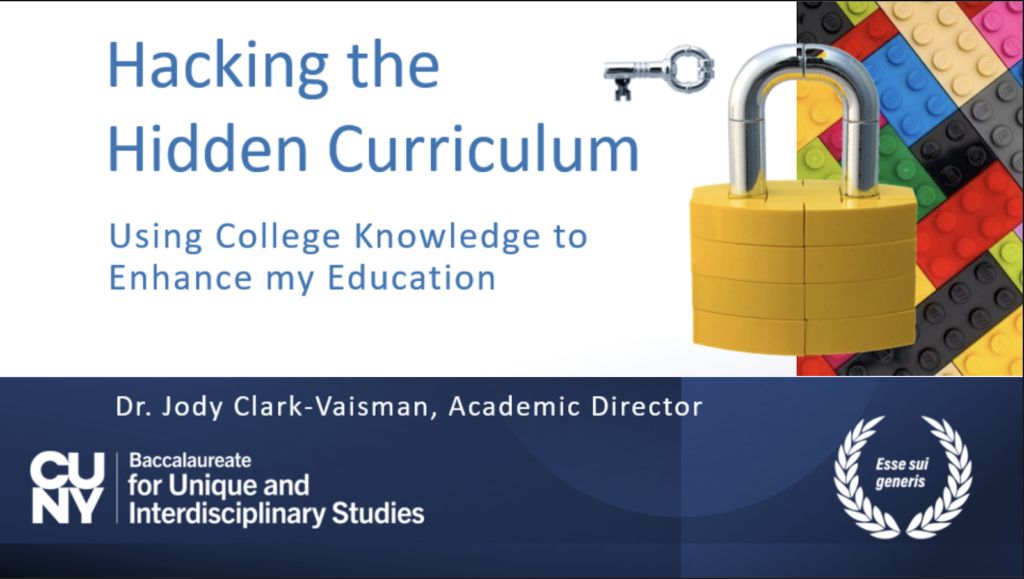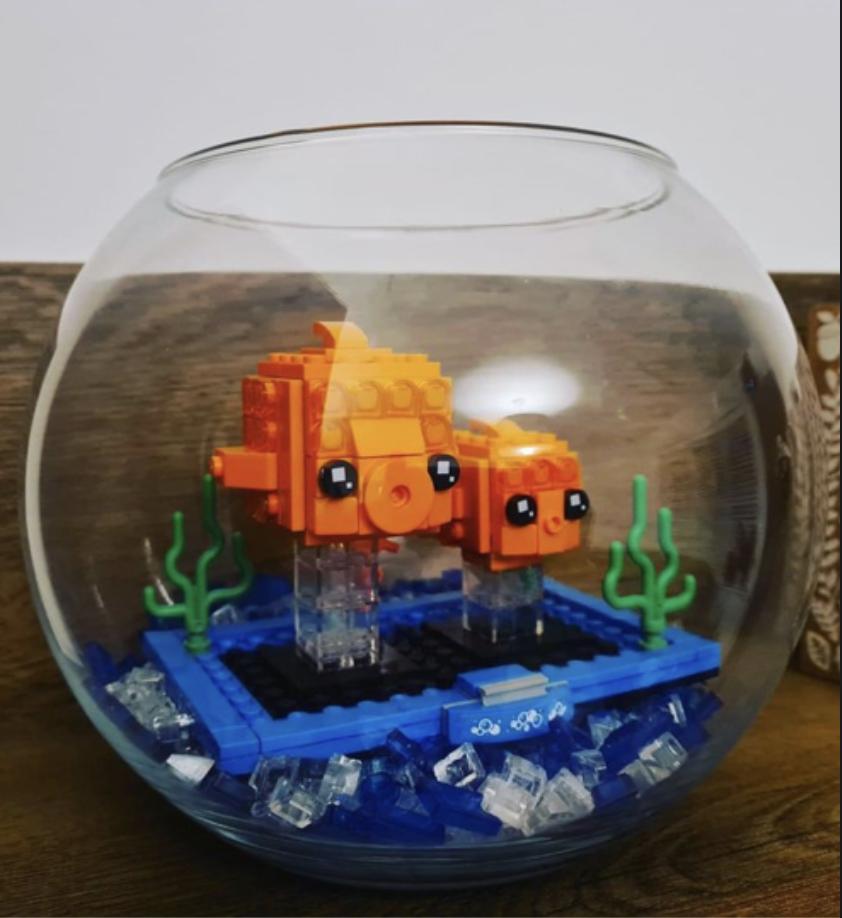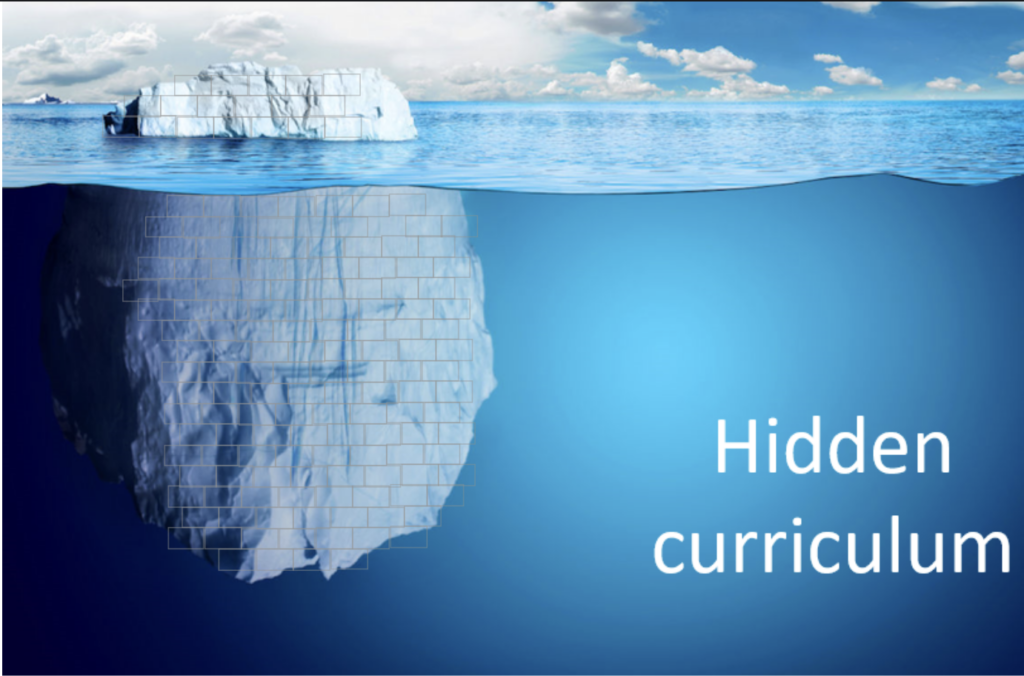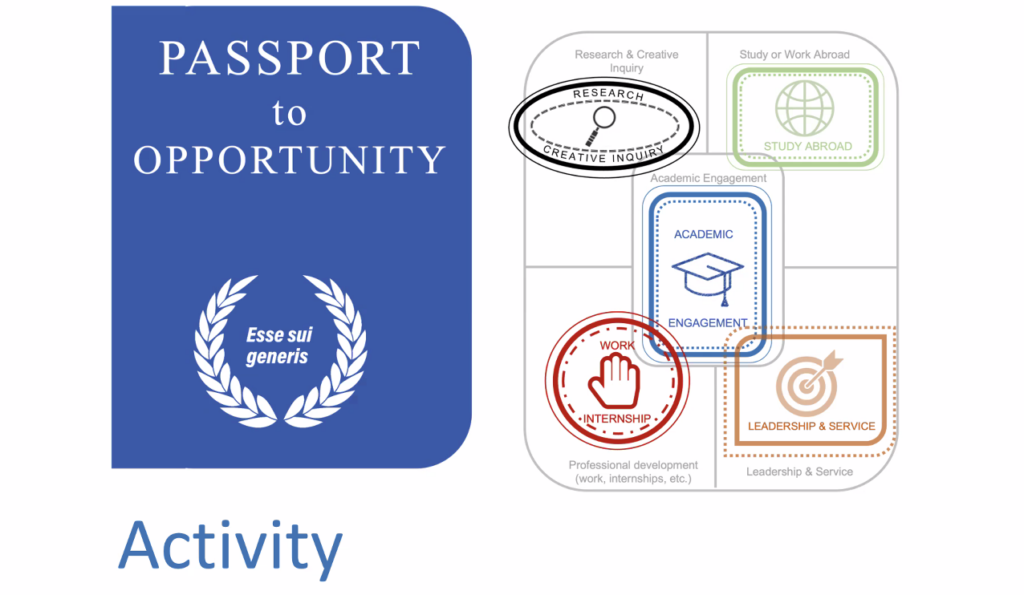Originally posted on the CPL website.

Gathering in the Graduate Center’s Skylight Room for the last CPL meetup of the year on December 15, 2023, the CUNY Peer Leaders welcomed a guest speaker: Dr. Jody Clark-Vaisman. Dr. Clark-Vaisman serves as Academic Director of the CUNY Baccalaureate for Unique and Interdisciplinary Studies Program (the “CUNY BA”), CUNY’s university-wide interdisciplinary, individualized degree program. The leaders passed the microphone around the room and practiced introducing themselves in a professional setting, a skill they undoubtedly will use again and again throughout their lives and careers.

After introductions, Dr. Clark-Vaisman led the CUNY Peer Leaders in an activity to reflect on how information about college is circulated. Everyone stood and congregated in one part of the room. She asked the students, “Where do you get your information for what you’re supposed to do in college? If you get it from your family, please step forward. Academic advisers?” Approximately 50 percent stepped forward for academic advisers. “Faculty? From fellow students? Online?” All students stepped forward, so Dr. Clark-Vaisman dove deeper into specific digital spaces: “LinkedIn? College email?” Many professors forward students opportunities, newsletters, and information on scholarships or internships.
Next, Dr. Clark-Vaisman said, “Step forward if your family and friends know what you want to do, your major. Of you, how many of you know what you want to do, that that is your major. How many of you are afraid of making a mistake while in college?” Almost everyone shares this fear, leading Dr. Clark-Vaisman to a follow-up question: “How many of you feel parental pressure around the major you choose?”
These questions helped to establish some of the common ground students share in college, and what influences their decision making in positive and potentially negative ways. Students can feel pulled in numerous directions at once and get a bit lost navigating a sea of information. Dr. Clark-Vaisman ended the reflection with a brief reminder of the hidden curriculum: that what we see is typically only one eighth of the iceberg, and there is much more navigating we have to do beneath the surface.

Groups of students worked together at the round tables on another guided activity to complement the last. Each table had a handout with four speech bubbles on it, each for a different group (Other students; Parents and family; Online; Other) where we get our information from. Participants were instructed to write down what each of these groups is saying: “What advice did they give you about college? (Good and bad).”
After a few minutes, students shared aloud with the larger group what they wrote down. Other students say, “Get an internship,” “Get a job,” or they themselves don’t know. Some advice can be useful for navigating coursework (e.g., “Take this professor,” advice in class group chats, joining a club to build a network and connections to gain future employment). Sometimes parents advise not to overstress, to go to office hours because they are there for a reason. Online, students receive loads of reminders from CUNY about financial aid and deadlines that are helpful. Some bad advice one student received was to take multiple STEM classes all at once, and they found that this wasn’t the most balanced course load. Most of the advice was positive, and it was wonderful to hear the leaders shift from repeating advice from others to giving each other first-hand advice from their own experiences. CPL Director Lauren Melendez and Facilitators Kelsey MIlian and Jackie Cahill have really created a community of camaraderie and support among the leaders.
The session was an engaging one. Dr. Clark-Vaisman showed a slide with an image of a “Passport to Opportunity in College” that included 5 sections you need to get a stamp in, and asked students to think aloud of the kinds of things they would do to earn a stamp in each category:
- Academic Engagement (classes, intellectual growth, interdisciplinary gen ed coursework)
- Research & Creative Inquiry (volunteering at a lab, at an office, in a class, a thesis, )
- Study or Work Abroad (cultural capital, maturity, worldliness)
- Professional development (internship, work)
- Leadership & Service (participating in a program like the CPL program)

Dr. Clark-Vaisman made a plug for CUNY BA, sharing that they just started an Opportunity Fund to give students stipends for various activities like unpaid internships and study abroad.
She commented on the lego theme to the slide deck and explained that the CUNY BA program is like a box of legos: you can make it (a BA or BS major) like what’s pictured on the box, or you can make it unique in the CUNY BA program. She then introduced us to the next activity: a “design your own degree” exercise, using the global search engine for courses offered at CUNY. Students worked in groups to invent a major for an imaginary student based on a famous figure we know. Students chose Tom Brady, King Arthur (who had pursuits as a major in the art of war with a concentration in strategic management), Barbie (who concentrated in finance of fashion and gender studies), and Cooper (a pilot in Interstellar, who had a concentration in computation/technology and one in physics). In my group, we planned a real major for a real student. One leader soon to graduate from Hostos is planning to enroll in CUNY BA, and we looked into courses that would combine journalism, legal, and music industry studies.
The day concluded with a share out. Dr. Clark-Vaisman asked, “What’s something you want to learn more about that we discussed today?” Many students said they wanted to know more about research opportunities (some advice: talk with faculty in your major to ask about the research methods in the discipline); fellowships and scholarships; and financial aid opportunities. The advice they shared out for their peers today was to form a community. Everyone agreed that the advice in community circles—and the encouragement most of all—is crucial.
Big thanks to Dr. Clark-Vaisman for leading us in reflective activities that helped us to take a step back from the grind of the semester and take a bird’s eye view of college education, reminding ourselves that we are the pilots, empowered with self-knowledge, and we can do this.


